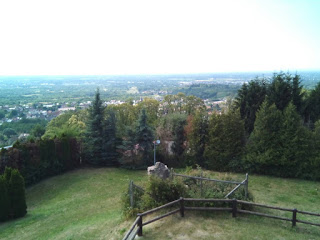 I'm a twenty-three-year-old American woman,
and like many American people I'm overweight.
I've been overweight most of my life. Being overweight makes my life in Japan a
little more difficult that it would be normally, especially when shopping for
clothes. I've observed that there seem to
be much fewer overweight people in Japan than in the U.S. This is due to a
number of factors including culture,
diet, and lifestyle. One factor that I'd like to discuss is the way people talk
about weight, not in the media but in conversations between friends and family.
I'm a twenty-three-year-old American woman,
and like many American people I'm overweight.
I've been overweight most of my life. Being overweight makes my life in Japan a
little more difficult that it would be normally, especially when shopping for
clothes. I've observed that there seem to
be much fewer overweight people in Japan than in the U.S. This is due to a
number of factors including culture,
diet, and lifestyle. One factor that I'd like to discuss is the way people talk
about weight, not in the media but in conversations between friends and family.
In
the United States, much like in Japan, overweight people are often made fun of in public, in school, and by media.
However, when talking to friends and family, people often don't mention weight
at all, sometimes they even deny that a person might be overweight. This is
especially true among women. An example conversation might look like this:
Overweight
girl: "I'm so fat! I think I should go on a diet."
Friend:
"Don't say that! You're fine just the way you
are."
Overweight
girl: "You think so?"
Friend:
"Of course! You look great."
Rather than encouraging
a decision to live a healthier lifestyle, many Americans prefer to flatter their friends and family by telling them
that they look good and that they don't need to change. We often only encourage
others to lose weight in extreme cases, when it seems like their health is in
immediate jeopardy. Unsolicited advice about weight loss is considered
offensive.
My
experience in Japan, however, has been the complete opposite. I have spoken to
many girls (I haven't talked about this with Japanese men) whose parents and friends
have told them directly that they need to lose weight, even if they're only 5kg
or so overweight. Here's a conversation I've had with a close friend.
Me:
"Lately my ankle has been hurting."
Friend:
"Do you think that your ankle hurting is a sign that you should lose
weight?"
I've
talked about this exchange with Japanese people and with American people, and
the reactions are very different. American people find it rude and hurtful.
Japanese people have said that it sounds like this person really cares about my
health. After living in Japan for almost two years, I've
come to appreciate this kind of honesty and it doesn't offend me as
much.
I
believe that this difference in culture is one main reason why there are so
many more overweight people in the U.S. than there are in Japan. It's something
that needs to change, but unfortunately I don't think that it's going to change
any time soon.
If
you are a Japanese person and you have a friend from the United States or
another western country, be careful about mentioning a person's weight to them
directly. Instead, maybe offer advice in a more indirect way, like "This
food is very healthy." or "This is a fun way to exercise!" It
may seem strange, but I think it's the best way to help your western friend
without hurting his or her feelings.
Overweight :太りすぎ
observed:観察している
factors:要因
made fun of: からかう
just the way you are:ありのままの自分
Rather than: 却って
encouraging:to cheer
someone on, to support:応援する
flatter:褒めそやす
jeopardy:危険
unsolicited:頼みもしない
offensive:攻撃的な
rude:失礼な
hurtful:中傷的な
I've come to:~するようになってきた


















